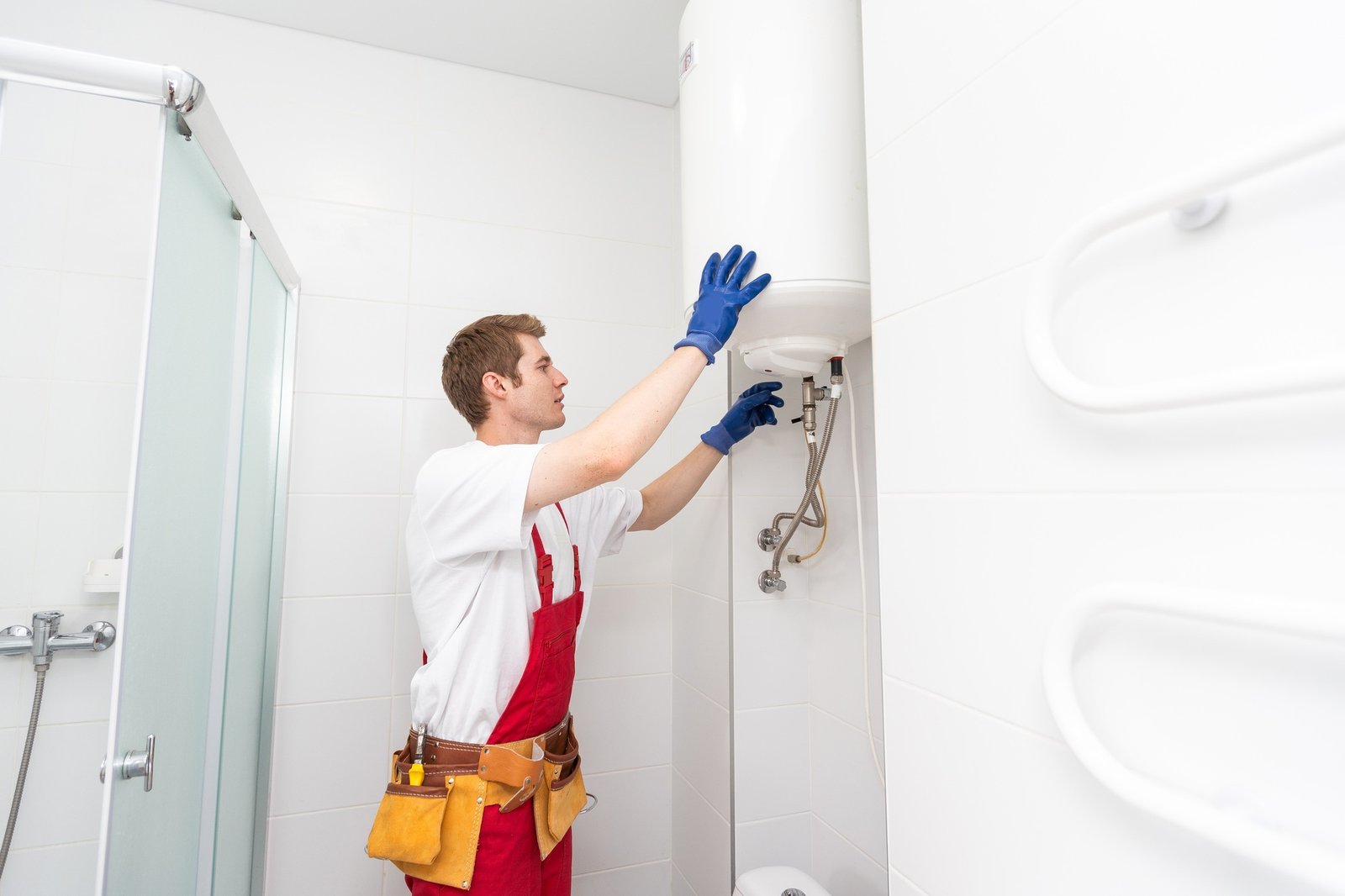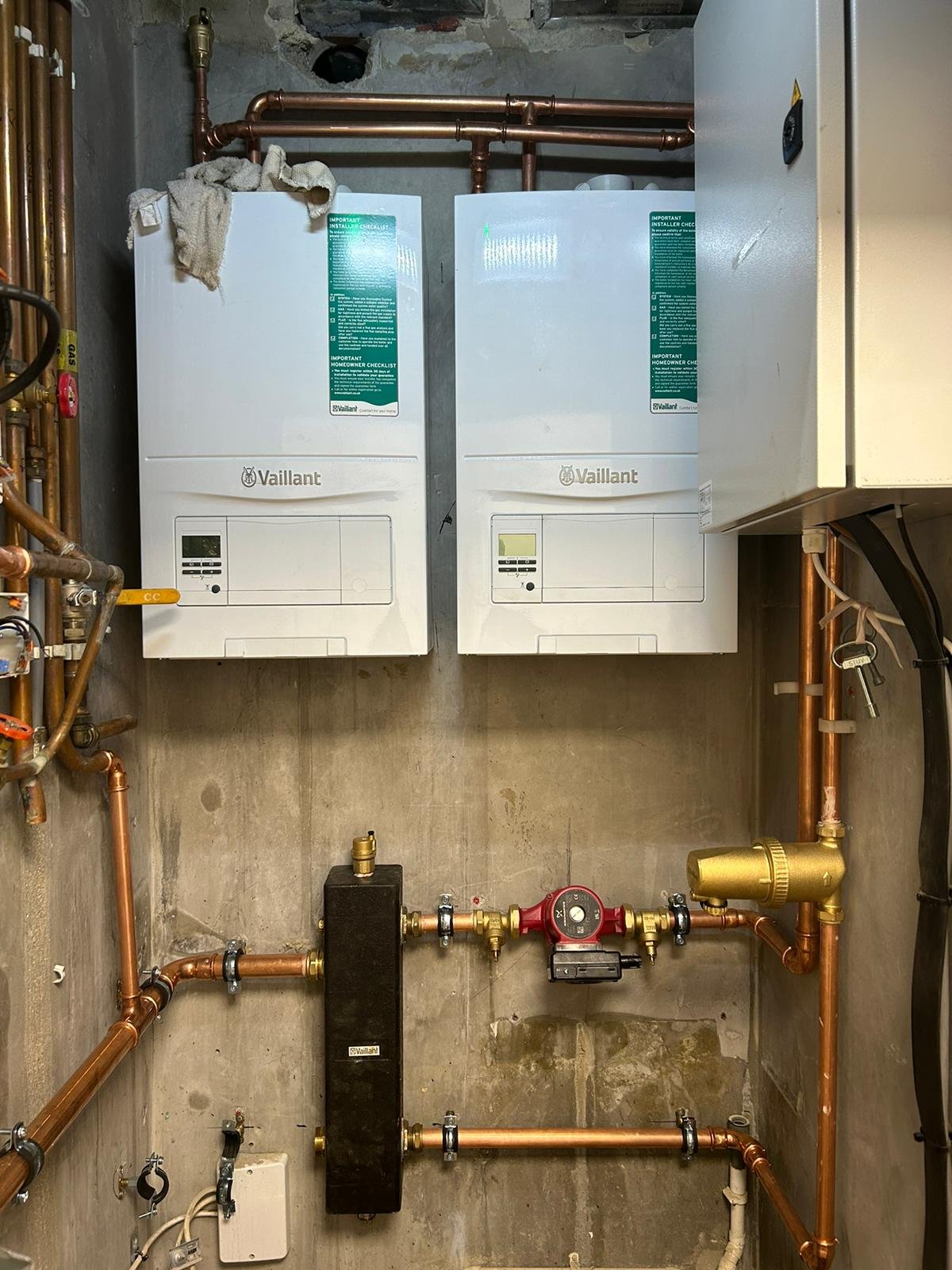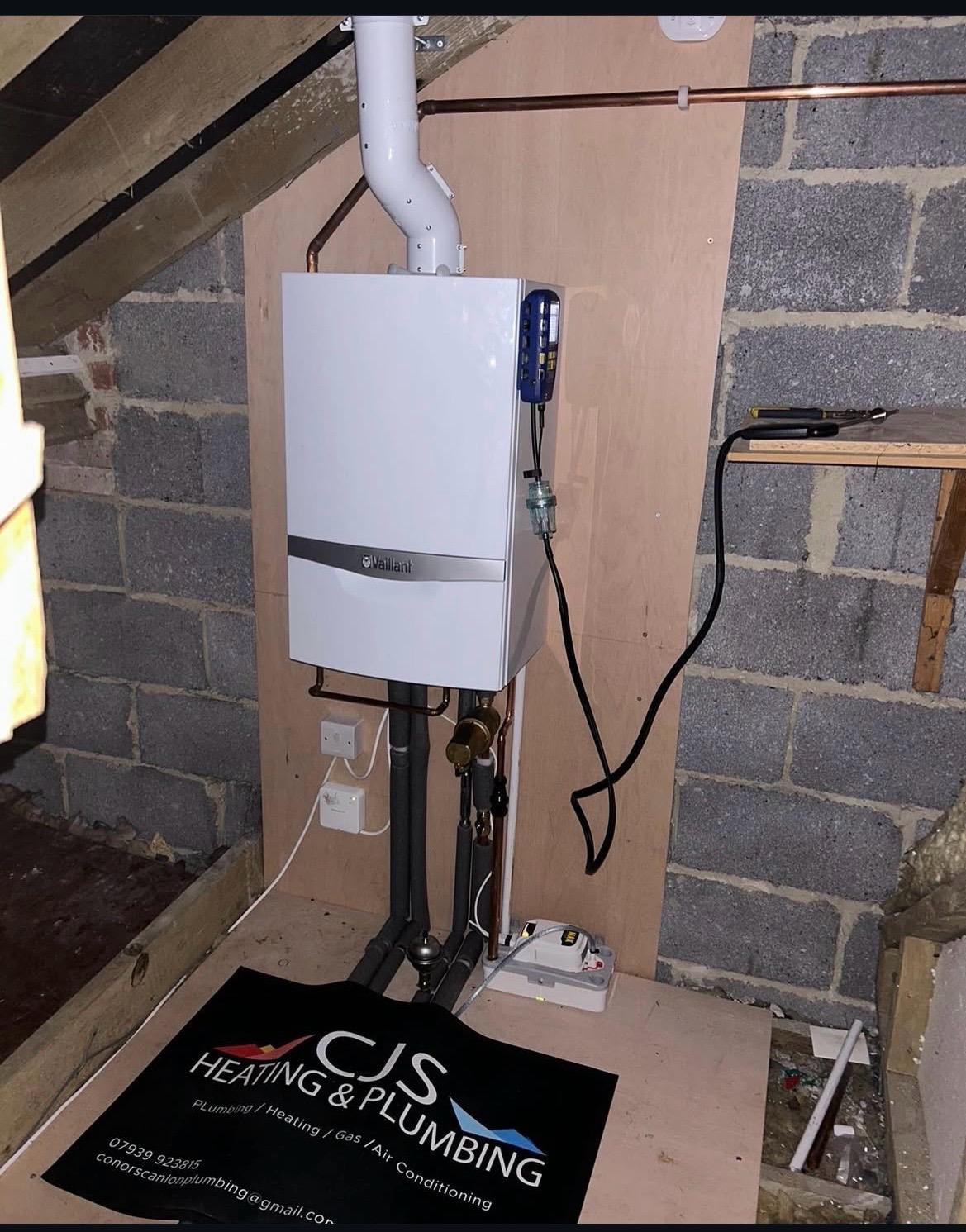For homeowners, understanding what counts as an emergency repair for a boiler is crucial. A sudden breakdown can leave you without hot water, disrupt heating, and even pose serious safety risks. Knowing when to call a professional heating engineer or request an emergency boiler repair can protect your property, health, and comply with legal obligations. In this guide, we will explain what qualifies as an emergency, the difference between urgent and routine repairs, and the core triggers that require immediate attention.
An Emergency Boiler Repair
An emergency repair goes beyond the dictionary definition of “urgent.” It is any repair that prevents immediate danger, health risks, or significant property damage. This includes situations where your boiler failure could cause accidents, unsafe living conditions, or severe damage to your home.
Urgent vs Emergency vs Routine Repairs
Understanding the distinctions can save time and stress:
- Emergency Repair: Immediate threat to safety, health, or property. Requires a professional visit as soon as possible.
- Urgent Repair: Important but does not pose an immediate threat. Should be addressed within 24–48 hours.
- Routine Repair: Non-critical maintenance or minor issues that can wait for a standard service appointment.
Core Triggers of an Emergency
Certain faults clearly require fast action:
- Total loss of heating in winter: Being without heating during freezing months can be dangerous, particularly for the elderly, children, or vulnerable tenants.
- No access to hot water: Essential for hygiene and health. Lack of hot water may warrant an emergency boiler repair.
- Gas leaks or the smell of gas: Immediate risk to life. Evacuate and call professionals without delay.
- Carbon monoxide warnings: Poisoning risk makes this a serious emergency.
- Leaks causing water or electrical hazards: Water on electrical systems or large leaks can damage property and pose shock risks.
What Is Not Classed as an Emergency
Not every boiler issue requires immediate attention. Examples of non-emergency issues include:
- Minor pressure drops
- Noisy pipes or unusual sounds
- Timer or thermostat faults
While these problems should be addressed, they do not typically pose a direct danger.
Seasonal Context Matters
Timing plays a role in defining urgency. A boiler fault in summer might be inconvenient, but the same issue in winter, when heating and hot water are essential, can be an emergency. Context determines whether a repair requires immediate attention or can be scheduled for a later date.
Don’t wait until a minor fault becomes a full-blown emergency. Contact CJS Heating & Plumbing today to book a service or request an emergency visit and keep your heating system reliable all year round.
Common Emergency Boiler Situations and What to Do Immediately
Boiler issues can strike at any time, leaving homeowners without heating or hot water and sometimes creating dangerous situations. Knowing how to respond quickly can prevent further damage and ensure the safety of everyone in your home. This guide explains common emergency boiler situations and the immediate steps you should take before professional help arrives. Acting promptly and safely is key to avoiding costly repairs and potential hazards.
No Heating or Hot Water
One of the most common issues homeowners face is a complete loss of heating or hot water. Before panicking:
- Check the thermostat to ensure it is on and set to the correct temperature.
- Confirm the pilot light is lit if you have an older boiler.
- Check the boiler’s pressure gauge; low pressure can prevent it from operating.
If these simple checks do not restore functionality, it is time to call a Gas Safe registered engineer for an emergency repair. Quick intervention prevents further inconvenience and protects your system.
Gas Smell or Carbon Monoxide Alarm
A gas leak or carbon monoxide alarm should be treated as a serious emergency. Take the following steps immediately:
- Shut off the gas supply at the main valve.
- Open windows and doors to ventilate the area.
- Evacuate your home if necessary.
- Call the National Gas Emergency Service on 0800 111 999.
Never attempt to fix a gas leak yourself. Carbon monoxide is colourless, odourless, and extremely dangerous. Prompt professional intervention is essential.
Leaking or Flooding Boiler
Water leaks from a boiler can quickly cause property damage. To manage this safely:
- Turn off the water supply to the boiler.
- Switch off the electrical supply to avoid the risk of electric shock.
- Contact a Gas Safe engineer for an emergency repair.
Acting quickly can minimise damage and prevent further strain on your heating system.
Frozen Condensate Pipe
During freezing weather, your condensate pipe may freeze, causing your boiler to shut down. Safe DIY steps include:
- Gently pour warm water over the frozen section.
- Avoid using open flames or boiling water to prevent damage.
- Once thawed, restart the boiler and check for normal operation.
If the pipe remains frozen or there is a leak, contact a professional.
Boiler Lockout with Warning Lights
Modern boilers display warning lights or codes when a fault occurs. These indicators can range from minor issues to serious malfunctions. Always refer to the user manual, but if the code indicates high pressure, repeated lockouts, or gas-related problems, arrange an emergency repair with a Gas Safe engineer.
Legal Duties, Responsibilities & Practical Steps
Boiler emergencies are not just inconvenient, they are serious safety and legal concerns. Both landlords and tenants have specific duties to respond quickly and correctly, particularly when dealing with a broken boiler or the smell of gas. Understanding these responsibilities ensures safety, legal compliance, and timely resolution. Acting promptly can prevent costly damage, health risks, and legal penalties.
For Landlords
Under the Landlord and Tenant Act 1985 and Gas Safety (Installation and Use) Regulations 1998, landlords are legally obliged to maintain all gas appliances in safe working order. This includes conducting annual inspections and keeping valid gas safety certificates for every property.
In the event of a boiler failure:
- Respond within 24 hours for emergencies such as no heat, no hot water, or gas leaks.
- Ensure all repairs are performed by Gas Safe registered engineers only. Unqualified work can invalidate insurance and lead to prosecution.
- Provide tenants with clear instructions on reporting issues, including emergency contacts and escalation procedures.
Regular checks and proactive maintenance can prevent many issues before they become emergencies, protecting both tenants and landlords from legal and financial risks.
For Tenants or Homeowners
If your boiler is displaying an error code, is broken, or you detect a smell of gas, immediate action is essential:
- Report the problem to your landlord or property manager without delay.
- Document the issue using photos, written notes, or emails.
- Follow up in writing to maintain a clear record of all communications.
If the landlord delays:
- Contact your local council or environmental health department to escalate the matter.
- Clarify responsibilities regarding costs for emergency repair, temporary heating, or damages incurred.
Timely reporting protects tenant rights and helps prevent further damage.
Myth-Busting
Many tenants and landlords misunderstand their responsibilities:
- “Landlords can wait until the weekend to respond.” False. Emergencies must be addressed immediately.
- “You must wait until working hours to call a professional.” False. Safety issues, especially gas leaks, require urgent attention.
- “Minor error codes or leaks are not urgent.” False. Small warning signs may indicate serious underlying problems.
Practical Tips for Both Parties
- Always keep a written record of all communications regarding boiler issues.
- Never attempt DIY repairs if you are not qualified, particularly for gas appliances.
- Know the emergency contact numbers for your landlord, property manager, or Gas Safe engineer.
- Landlords should maintain up-to-date gas safety certificates for each property.
- Tenants should report any unusual smells, noises, or error codes immediately.
A broken boiler or gas issue is more than just an inconvenience, it is a potential hazard and a legal obligation. By understanding legal duties, taking practical steps, and responding quickly, both landlords and tenants can ensure that emergencies are handled safely, efficiently, and in full compliance with the law. Proactive maintenance, professional support, and clear communication are essential to protecting property, tenants, and everyone’s peace of mind.
How to Tell If Your Boiler Issue Needs Emergency Attention
Boilers are essential to keeping your home warm and providing reliable hot water, especially during the colder months. However, not every problem requires immediate action. Knowing the difference between a true emergency and a standard repair can save you time, money, and stress. Acting quickly in the right situations can also prevent damage to your property and ensure your safety.
Below is a diagnostic checklist to help homeowners identify whether they need an emergency boiler repair or if a standard boiler repair can be scheduled.
Emergency Situations
A boiler issue is considered an emergency if any of the following occurs:
- Smell of gas or suspicion of carbon monoxide: If you detect a gas odor or symptoms like dizziness or headaches, leave the property immediately and contact the emergency services. This is a critical safety hazard.
- Complete loss of heating or hot water in freezing weather: Without heating or hot water, your home can quickly become uncomfortable or even unsafe during extreme cold.
- Visible water damage or electrical hazards: Leaks near electrical components or pooling water around the boiler can pose serious risks.
- Unusual sounds, burning smell, or smoke: Any strange noises accompanied by burning odors or smoke are clear warning signs of a dangerous malfunction.
- Safety error codes or automatic shutdown: Modern boilers often display safety error codes or shut down automatically to prevent further damage or hazards. This requires immediate attention from a qualified heating engineer.
In these cases, contact a professional for emergency boiler repair without delay. Quick action can prevent costly damage and protect your household.
Not an Emergency
Some issues, while inconvenient, do not require immediate attention and can usually be handled with a routine boiler repair or scheduled service:
- Minor pressure loss: Small drops in boiler pressure can often be corrected without urgency.
- Inconsistent heating but still functioning: If your radiators are warm but not evenly heated, a standard repair or servicing appointment can address the issue.
- Regular servicing or part replacement: Issues such as worn parts or minor leaks can typically wait for a planned service without putting your safety at risk.
When to Call a Professional Heating Engineer
Dealing with boiler issues doesn’t have to be stressful. Whether it’s a routine boiler repair or an urgent emergency boiler repair, the team at CJS Heating & Plumbing has you covered. Our skilled heating engineers handle everything from boiler installations and servicing to full central heating maintenance and emergency plumbing for residential, commercial, and industrial properties.
By acting quickly and getting professional help, you can keep your hot water flowing, prevent costly damage, and stay safe. Don’t wait for a small issue to become a big problem, call 07939 923815 or email info@cjs-heatingandplumbing.co.uk today and let us take care of your heating system with care and expertise.





